With the Better Hearing Month nationwide public awareness campaign set for the entire month of May, this is a great time to think and talk about better hearing health.
Since the start of the industrial revolution and the mechanization of our society to the Herculean effort of U.S. industry during World War II (when all those Rosie-the-Riveters stepped in to take the place of men working in our factories) to the rock ‘n’ roll concerts of the ’60s to the personal music systems of today — Americans have a history of abusing their hearing.
Estimates are that 55 million Americans (1 out of every 5) have some form of hearing loss. Yet the hearing care industry records show that less than 25% of these people seek professional help for their hearing difficulties. Some of these people are under the false assumption that nothing can be done for their hearing difficulties, while others believe that our sense of hearing is not all that important.
As someone who has devoted her entire professional life to helping people with hearing loss, I can assure that solutions are available and that our sense of hearing is vital to a healthy, fulfilling lifestyle. Following are three important healthy hearing points that, if taken to heart, can lead to a happier and healthier you!
Healthy hearing can prevent brain atrophy
Numerous studies during the last decade have supported what audiologists have believed all along: that seeking the right professional solutions can improve the physical and mental wellbeing of a person with hearing difficulties.
But the most recent study by researchers at John Hopkins University offers one of the most compelling reasons to address one’s hearing difficulties, and that is that brain volume shrinkage is accelerated in older adults with hearing loss!
Although the brain does become smaller with age regardless of hearing ability, the research indicates that shrinkage occurs at a greater rate for those suffering from hearing loss of at least 25 decibels, which is considered a mild hearing loss. Much of the shrinkage was located in regions of the brain that process sound and speech, apparently a consequence of starving the auditory cortex of stimulation. The study was performed over the course of 10 years, with participants undergoing yearly MRIs to track changes in the brain.
Healthy hearing means reducing your risk of ototoxicity
While exposure to loud noise is the number-one culprit of hearing loss in America, followed by a family history of hearing loss, there is another perpetrator who may, on the surface, seem innocent — residing in your medicine cabinet.
Whether prescribed or over-the-counter, some medications can, in certain situations, cause hearing loss in some individuals. Seniors, who tend to require more medications than other age groups, should be especially aware of this potential problem, which is referred to in the medical community as “ototoxicity.”
As individuals react differently to various medications, the side effects (in this case, the extent of hearing loss) may not be known until after the medication has been administered. My advice is that if anyone is taking any of these medications — antibiotics, chemotherapy drugs, aspirin, or any other over-the-counter drugs — they and family members should be on the alert for sudden hearing loss and contact their physician immediately should it occur.
Healthy diets support healthy hearing
It is generally accepted that a healthy diet is good for our bodies, but what about our hearing? I won’t go so far as to say that an apple a day will keep the audiologist away, because everyone should get their hearing checked on a regular basis, just as regular eye, dental, and other physical checkups are common practice for most Americans.
However, a 2007 study published in the Annals of Internal Medicine suggests that adding certain vitamins, minerals, and nutrients to patients’ diets could delay the need for hearing aids later in life. In the study, individuals who took a folic acid supplement over the course of three years had less low-frequency hearing loss than those who took a placebo.
Other important nutrients for hearing health are vitamin B12, which plays an essential role in protecting the brain and central nervous system, as well as magnesium and vitamins A, C, and E. It was reported in another 2007 study (this by Free Radical Biology & Medicine) that taking a mixture of these vitamins prior to and during exposure to loud noise may minimize the damaging effects.
The month of May is the time to do it — get your hearing checked by a competent, AudigyCertified™ doctor of audiology. The path to a happier, healthier you is here for you to take…because hearing is a wonderful gift!

